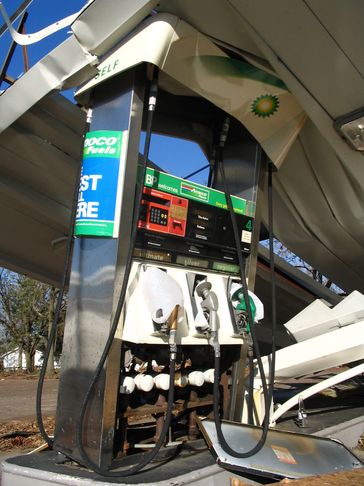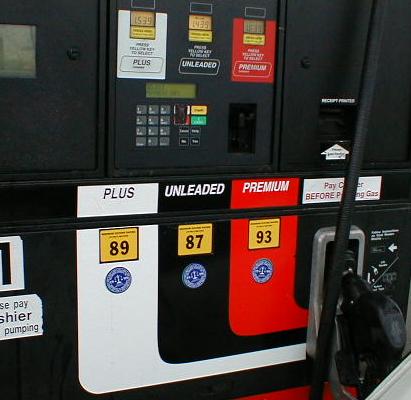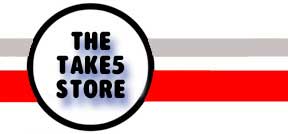Memorial Day Gasoline Pricing

There are a million ways to approach this but let’s cut to the chase.
There are some people who love to cry we’re at the “peak oil” stage which in theory means production will never be as great as it stands now but that hardly seems the truth. There is plenty of oil left on Earth, there may not be much cheap oil that gurgles out of the ground or the lighter crude that’s easy to get but we have plenty of oil. You can read more at Wikipedia – and if we count oil shale, the US has enough to last over 100 years and sure, eventually we will run out of oil but frankly, why should we really worry? We humans are pretty clever – just like people in 1965 thought we’d run out of food by the late 1970’s and there would be worldwide food riots. And while the population has doubled in the past 20 years, we are generating enough food to feed everyone – our only problem is that on occasion, politics get in the way.
So, I’m not worried about running out of crude or whether in 4 generations, how will people move about in society. I honestly do not believe people will just fold up their tents and start going bipedal again. We’re too smart and frankly too lazy.
No, the problem is that the whole pricing scheme was based upon a system that no longer works as it should because the oil industry & the financial industry changed the conditions.
First, you should note that the price that’s quoted and bandied about is the price of a short term SPOT contract to purchase a barrel of crude oil (a barrel is 55 gallons BTW) – what does it actually mean? Not much of anything – the major oil companies do not need to buy oil on the spot market, they have LONG TERM contracts with different countries. What does it actually cost them to dredge up a barrel of oil? A couple dollars to around $15 dollars – so of course, anything above that is profit.
Everyone has different deals with different countries so there’s no set formula but back in the old days, the system made sense, most countries (with their major oil company partners) produced the oil but also needed an open “marketplace” for refiners to buy. Most refineries were owned by independent or different companies which naturally wanted to pay as little as possible. Now fast forward to 2007, most refineries in the United States are now owned by the major companies or equally large gasoline interests and there’s very little competition. It’s great to be in business where you can save on maintenance because if the plant catches on fire and you shut down, you actually make MORE money because of shortages.
Now, it is complex because, it is true, most people do not want a new refinery built in their neighborhood but then the oil companies don’t try very hard to get new refineries approved – why should they? When they started merging, people were all worried they would own all the gas stations but no one noticed where the real power and profits resided, in the refining business.
So, now, the refineries don’t really care what the cost of a barrel is because they’re just taking money from their own pocket to put it into another pocket. Basically, it would be like if you charged your family $5 to drink a glass of water – you would pay too but what you care, that $5 dollars is just moving from your left to right pocket.
We also don’t know how much is manipulated DIRECTLY by the oil companies (again, if they’re digging it out of the ground for $15 dollars a barrel, why not bid the price of a spot barrel higher, that’s just more money for them) or the newfangled hedge funds?
You just have to look at Katrina – sure, I understand where the Eastern Gulf States might have shortages and prices might rise but really, how many cars were taken off the road in 2 to 3 states for months at a time – especially in Mississippi? So basically the price was bid up on a PERCEIVED shortage – I’m on the West Coast, how much gasoline do I pump into my car from Louisiana or Mississippi? I would venture ZERO? Yet, we let the price jump on speculation, why?
Isn’t gasoline really a necessity of life now? Should it be as freely traded (or manipulated) when the market is so closely held? When it’s not really a free market system at work but dueling monopolies? Of countries and major conglomerates as large as countries (Exxon has some $35 billion in cash reserves, in 2000 during a down year for them, if earnings were GNP, they’d be the 26th largest country … where are they now, 20th?).
Now, I’m not a communist nor a socialist and I have no problems with a company that makes a profit – even a huge profit but I do question when the setup is all skewed. If the price of timber goes up, everyone who produces paper products (and ultimately the consumer pays more) but for oil companies, when crude oil prices go up, they make more profits because their costs don’t change at all, when the refinery is closed or partially shut down, they make more profits and of course, as soon as the spot contract price changes, they raise prices at the retail level IMMEDIATELY … and when they fall, it falls VERY, VERY slowly. Why do they get to change prices by the minute? The costs of production have not changed, the cost of transporting hasn’t changed … what changed? The price for a FUTURE spot contract to a price they don’t actually pay? None of it makes any sense.
Here’s the CEO of BP explaining why $22 billion is profit is really nothing.

So, what can we do, pretty much nothing …
And as long as we let the politicians work the solution, we’re more screwed … ethanol anyone? Haven’t seen a drop of it but apparently the diversion of corn to make it has raised the price of corn 20% and feed for cows, steers and pigs so food prices as well as transportation costs are going higher – yea, good thing we have all this ethanol – otherwise we might be paying $3.00 a gallon for gas, oops, make that $4.00.
Oh and this, “Oil refiners receive a 51-cent tax credit for every gallon of ethanol they blend into their gasoline. That alone will cost taxpayers more than $7 billion over five years …” and if you’re an environmentalist, we’re getting Brazil to plant more corn – humm, guess we need some more flat land without any trees …
So, in summary, more profits, more subsidies, less corn, food prices going up. Brilliant … well, not for us – for someone.
So, what can we really do? Not much. Sure, you could drive less or buy a smaller car but what’s that really going to change?
Well, Mythbusters answered the question of whether you should drive with the air or the windows down?
“REVISITED: Running a car with air conditioning on is more fuel efficient than running with the windows down. (From episode 22)
Partly Confirmed
The fundamental flaw in the MythBusters’ test was that the point where the drag becomes powerful enough to inhibit a car’s performance with windows down was inside their 45 – 55-mph margin at 50-mph. Going less than 50-mph it is more efficient to leave your windows down, but going greater than 50-mph it is more efficient to use your A/C.”
Also, make sure to buy gasoline really early in the morning or in the middle of the night – gas apparently expands as it gets hotter in the underground tanks so you actually get less …
You can also read everything at DAILY FUEL ECONOMY TIP.







